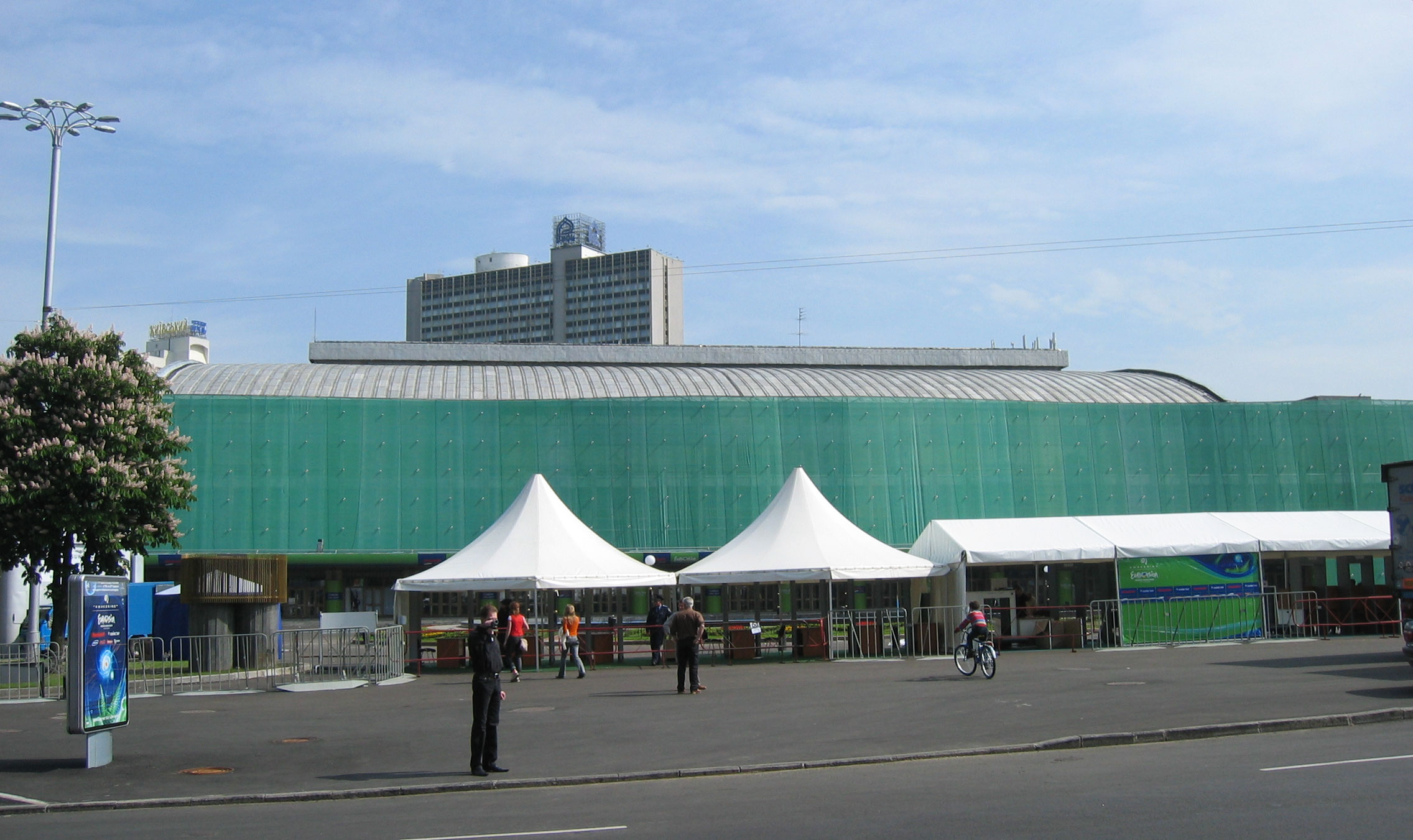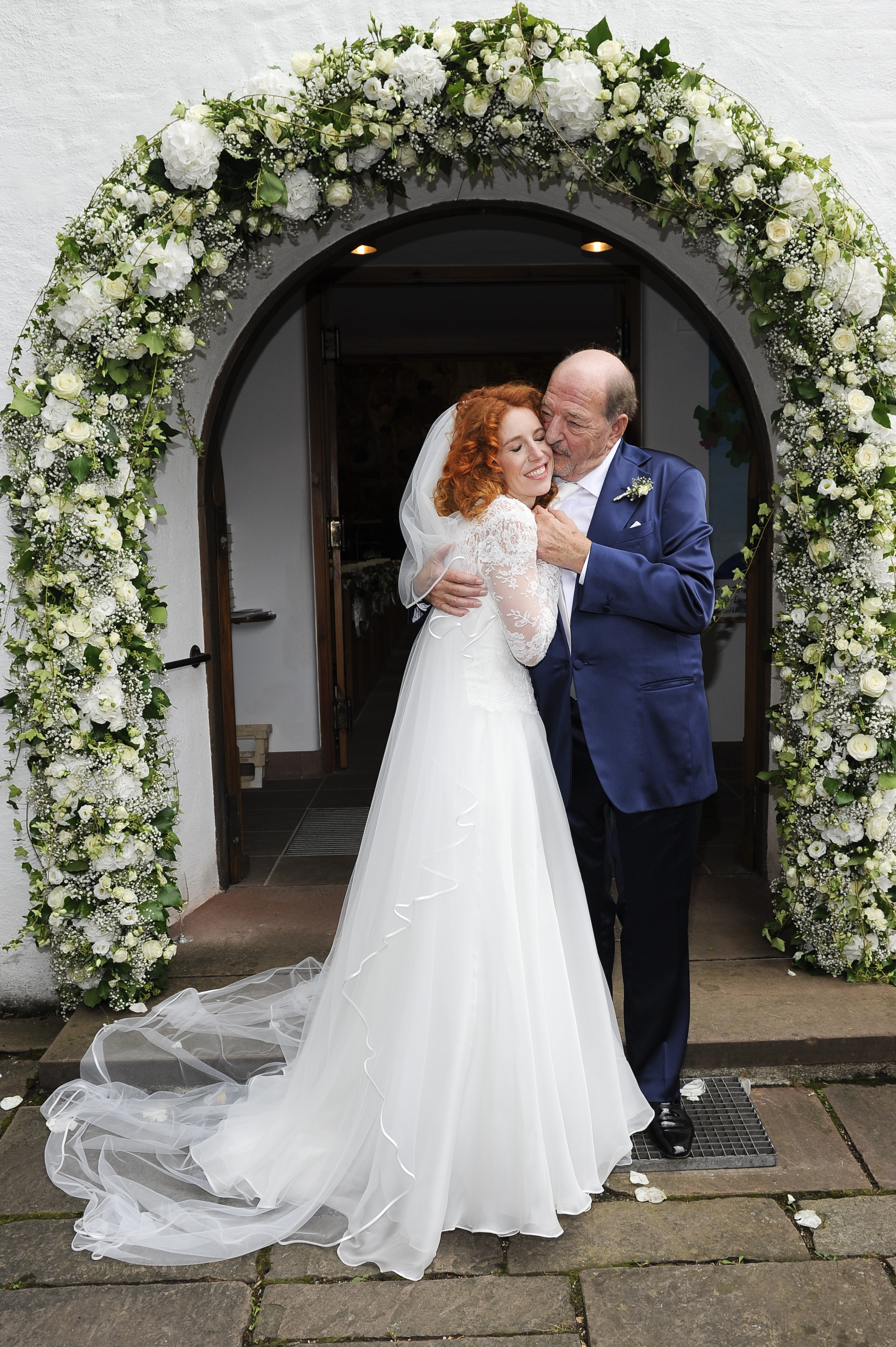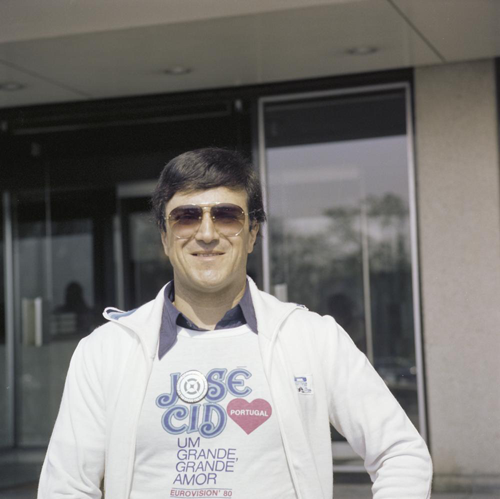|
Portugal In The Eurovision Song Contest 2011
Portugal participated in the Eurovision Song Contest 2011 with the song "A luta é alegria" written by Vasco Duarte and Jel. The song was performed by the group Homens da Luta. The Portuguese broadcaster Rádio e Televisão de Portugal (RTP) organised the national final '' Festival da Canção 2011'' in order to select the Portuguese entry for the 2011 contest in Düsseldorf, Germany. The competition took place on 5 March 2011 where "A luta é alegria" performed by Homens da Luta emerged as the winner after achieving the highest score following the combination of votes from twenty regional juries and a public televote. Portugal was drawn to compete in the first semi-final of the Eurovision Song Contest which took place on 10 May 2011. Performing during the show in position 16, A luta é alegria" was not announced among the top 10 entries of the first semi-final and therefore did not qualify to compete in the final. It was later revealed that Portugal placed eighteenth out of ... [...More Info...] [...Related Items...] OR: [Wikipedia] [Google] [Baidu] |
Homens Da Luta
Homens da Luta (Men of the Struggle) is a Portuguese improvisational comedy and musical street performance group consisting of brothers Vasco Duarte (Falâncio) and Nuno Duarte "Jel" (Neto). Their songs are a parody of songs sung during the period after the 1974 Carnation Revolution, and the characters played are caricatures of the revolutionary singers of the time, such as Zeca Afonso and José Mário Branco. Homens da Luta often use the term "struggle" to invoke slogans that became famous during the revolutionary era, such as "A Luta Continua" (The Struggle Goes On). In 2010 Homens da Luta released an mp3 album called "A Canção é uma arma" (The song is a weapon) consisting of 14 songs. One of their most popular songs is "E o povo, pá?" (What about the people, man?). Eurovision Song Contest In 2010, Homens da Luta took part in the '' RTP Song Festival 2010'', with the song "Luta assim não dá" (The struggle can't go on like this). The song was disqualified as it had been ... [...More Info...] [...Related Items...] OR: [Wikipedia] [Google] [Baidu] |
Eurovision Song Contest 2005
The Eurovision Song Contest 2005 was the 50th edition of the Eurovision Song Contest. It took place in Kyiv, Ukraine, following the country's victory at the with the song "Wild Dances" by Ruslana. Organised by the European Broadcasting Union (EBU) and host broadcaster National Television Company of Ukraine (NTU), the contest was held at the Palace of Sports, and consisted of a semi-final on 19 May, and a final on 21 May 2005. The two live shows were presented by Ukrainian television presenters Maria Efrosinina and Pavlo Shylko. Thirty-nine countries participated in the contest, three more than the previous record of thirty-six, that took part the year before. Bulgaria and Moldova made their first participation this year, while Hungary returned to the contest after a six-year absence, having last taken part in . The winner was with the song "My Number One", performed by Helena Paparizou and written by Manos Psaltakis, Christos Dantis and Natalia Germanou. This was Greece's firs ... [...More Info...] [...Related Items...] OR: [Wikipedia] [Google] [Baidu] |
Georgios Kalpakidis
Georgios Kalpakidis, also known as George Kalpakidis, Gorgi or GK (Greek: Γιώργος Καλπακίδης; born on 27 April 1978 in Tübingen, Germany), is a Greek songwriter, former journalist, radio & TV host, best known for having composed the 2019 Eurovision Song Contest entry for Moldova, "Stay" by Anna Odobescu. He started his radio work at the age of 13 and continued his career in the media field until 2015. He made his television debut as a host on Europe One channel, with a show called "Join Me" and also started appearing as a guest host in several projects over the next few years, on other local stations. His breakthrough came in middle 2006, when a new contract brought him to one of the biggest national networks, Macedonia TV. It was during the Eurovision 2006 period in Athens, where he was given the task to cover the event and report daily on live TV. His "ESC '2006" special, entitled "Hard Rock Hallelujah", was noted as one of the shows with the highest ratings o ... [...More Info...] [...Related Items...] OR: [Wikipedia] [Google] [Baidu] |
Henrique Feist
Henrique Feist is a Portuguese singer, actor and director. He is married to Ricardo Spínola. Early career Feist was born in Lisbon, Portugal and began his career as a pop singer in 1982 with his brother, performing on television and various radio shows. They recorded nine records, all of which hit the charts. In 1985 he created the role of Miguel in the Portuguese television soap '' Pedro e Paulina''. That same year he was awarded the Best Newcomer Award by the Portuguese National Press. For the next five years he toured Portugal with his brother and began his singing training with Maria João Serrão from the Portuguese National Opera. Theatre training Deciding to continue his studies in theatre he moved to England where he completed the three-year Musical Theatre course at the Guildford School of Acting. Work at drama college includes: Ciccio in ''The Most Happy Fella''; Sancho in ''Man of La Mancha''; Mr. Snow in ''Carousel'' as well as master classes with Martin Koch ... [...More Info...] [...Related Items...] OR: [Wikipedia] [Google] [Baidu] |
Bernd Meinunger
Bernd Meinunger (born 30 September 1944 in Meiningen) is a German lyricist and record producer (with Hanne Haller) who frequently works with Ralph Siegel and David Brandes. Several of his songs have represented Germany in the ''Eurovision Song Contest''. Selection of Works * "Dschinghis Khan" (with Ralph Siegel) * "Theater" (composed by Ralph Siegel, lyrics by Bernd Meinunger) * "Papa Pingouin" (composed by Bernd Meinunger and Ralph Siegel, lyrics by Pierre Delanoë and Jean-Paul Cara) * "Johnny Blue" (composed by Ralph Siegel, lyrics by Bernd Meinunger) * "Ein bißchen Frieden" (A little peace) (composed by Ralph Siegel, lyrics by Bernd Meinunger) * " Children, Kinder, Enfants" (composed by Ralph Siegel, lyrics by Jean-Michel Beriat and Bernd Meinunger) * "Laß die Sonne in dein Herz" (composed by Ralph Siegel, lyrics by Bernd Meinunger) * "Lied für einen Freund" (composed by Ralph Siegel, lyrics by Bernd Meinunger) * " Felicita`" (German version of a famous Italian song co ... [...More Info...] [...Related Items...] OR: [Wikipedia] [Google] [Baidu] |
Ralph Siegel
Ralph Siegel (born 30 September 1945) is a German record producer and songwriter. Siegel is one of the most notable figures at the Eurovision Song Contest, in which he has participated with 24 songs so far, among them the 1982 winner song Ein bisschen Frieden. Life and career Siegel is a prolific producer in the German genre of Schlager music. Since the early 1970s, he worked with artists like Udo Jürgens, Mary Roos, Heino, Rex Gildo, Michael Holm, Chris Roberts, Costa Cordalis, Mireille Mathieu, Peter Alexander, Roy Black, Karel Gott and Marianne Rosenberg. Since 1972 has participated with 24 songs in the Eurovision Song Contest, the latest being the 2017 Sammarinese entry "Spirit of the Night" by Valentina Monetta and Jimmie Wilson. In 1982, Siegel's and Bernd Meinunger's song Ein bißchen Frieden (A Little Peace), performed by Nicole won the Contest and became a hit in Europe. In 2003, both writers had success with Let's Get Happy, performed by Lou which came in 11th. ... [...More Info...] [...Related Items...] OR: [Wikipedia] [Google] [Baidu] |
José Cid
José Albano Cid de Ferreira Tavares (born 4 February 1942) is a Portuguese singer, composer and record producer. Internationally, Cid is best known for his 1978 progressive rock album'' 10,000 Anos Depois Entre Vénus e Marte'' and for representing Portugal at the Eurovision Song Contest 1980 with the song " Um grande, grande amor". With a career spanning more than 60 years, Cid has been awarded 25 Silver, eight Gold and three Platinum records in Portugal. In 2019, Cid received a Latin Grammy Lifetime Achievement Award, becoming the second Portuguese singer, after Carlos do Carmo, to receive the honour. Early life Cid was born in 1942 in Chamusca, son of Francisco Albano Coutinho Ferreira and Fernanda Tavares Salter Cid Ferreira Gameiro. At age 6, he moved with his family to the municipality of Anadia. His professional career began when he started a covers band called ''Os Babies'' ("The Babies"), in 1956. In 1960, Cid began Law School at the University of Coimbra (FDUC). ... [...More Info...] [...Related Items...] OR: [Wikipedia] [Google] [Baidu] |
Portuguese Language
Portuguese ( or, in full, ) is a western Romance language of the Indo-European language family, originating in the Iberian Peninsula of Europe. It is an official language of Portugal, Brazil, Cape Verde, Angola, Mozambique, Guinea-Bissau and São Tomé and Príncipe, while having co-official language status in East Timor, Equatorial Guinea, and Macau. A Portuguese-speaking person or nation is referred to as " Lusophone" (). As the result of expansion during colonial times, a cultural presence of Portuguese speakers is also found around the world. Portuguese is part of the Ibero-Romance group that evolved from several dialects of Vulgar Latin in the medieval Kingdom of Galicia and the County of Portugal, and has kept some Celtic phonology in its lexicon. With approximately 250 million native speakers and 24 million L2 (second language) speakers, Portuguese has approximately 274 million total speakers. It is usually listed as the sixth-most spoken language, the third-most sp ... [...More Info...] [...Related Items...] OR: [Wikipedia] [Google] [Baidu] |
RTP Internacional
RTP Internacional (RTPi) is a Portuguese free-to-air television channel owned and operated by state-owned public broadcaster Rádio e Televisão de Portugal (RTP). It is the company's international television service, and is known for broadcasting a mix of programming from other RTP's channels, together with special ''Contacto'' programmes aimed at Portuguese communities in Europe, Africa, the Americas, as well as Macao and East Timor. History It first started broadcasting via satellite in Europe on 10 June 1992 (Portugal Day). It soon expanded into Africa, where it reached audiences in Portuguese-speaking countries, as well as Canada, United States, Brazil and into Asia. It is also available on the Internet, via a subscription to the service JumpTV or with Octoshape. On 7 January 1998, RTPi ceased terrestrial broadcasting to Portuguese-speaking countries in Africa, and was replaced by a new separate service, called RTP África, which was available as a terrestrial TV service i ... [...More Info...] [...Related Items...] OR: [Wikipedia] [Google] [Baidu] |
RTP África
RTP África is a Portuguese television channel owned and operated by state-owned public broadcaster Rádio e Televisão de Portugal (RTP). It is available in the Portuguese-speaking African countries, where it is available as a basic cable and satellite channel, with the exception of Cabo Verde, where it is available as a free-to-air channel, distributed by the country's digital terrestrial television network. RTP África is also available for free on RTP's platform RTP Play. Its programming comes from the Portuguese public and private television channels and African public networks, RTP África also airs its own news, food and music TV shows. The channel is especially developed for the African communities and the cultural interchange between them and Portugal and for the Portuguese populations of Lusophone Africa. Due to a protocol, the channel also transmits programs from the United Nations dubbed in Portuguese. The channels' primetime news program, ''Repórter África'', focus ... [...More Info...] [...Related Items...] OR: [Wikipedia] [Google] [Baidu] |
RTP1 HD
RTP1 HD was RTP's HDTV channel. In 2008 it broadcast the 2008 Summer Olympics in HD on ZON's cable and satellite platforms. It is also marketed as RTP1 HD, when broadcasting RTP1 programming. The channel closed on November 28, 2017, after the test period ended and RTP1 got a proper HD simulcast. The channel reopened for a few days after technical problems arose, but was shut down after the proper HD simulcast was able to broadcast once more. Programming Sports * UEFA Champions League * Portugal national football team qualifying matches * Volta a Portugal Series * Bem-Vindos a Beirais ''Bem-Vindos a Beirais'' is a Portuguese television series broadcast by RTP. It has three seasons, with a fourth scheduled to air. The first season had 100 episodes and started airing on 13 May 2013 on RTP1. The second season premiered on 4 Nove ... Soap operas * Os Nossos Dias (now) Other * Festival RTP da Canção * Eurovision Song Contest {{Portuguese television stations ... [...More Info...] [...Related Items...] OR: [Wikipedia] [Google] [Baidu] |
RTP1
RTP1 (''RTP um'') is a Portuguese free-to-air television channel owned and operated by state-owned public broadcaster Rádio e Televisão de Portugal (RTP). It is the company's flagship television channel, and is known for broadcasting mainstream and generalist programming, including '' Telejornal'' news bulletins, prime time drama, cinema and entertainment, and major breaking news, sports and special events. It was launched on 7 March 1957 as the first regular television service in Portugal. It was the only one until 25 December 1968, when RTP launched a second channel. Two regional channels followed, RTP Madeira on 6 August 1972 and RTP Açores on 10 August 1975. As RTP held a monopoly on television broadcasting in the country, they were the only television channels until the first commercial television was launched on 6 October 1992, when SIC started broadcasting nationwide. The channel was initially simply referred to as "RTP". It received other names, such as "I Program ... [...More Info...] [...Related Items...] OR: [Wikipedia] [Google] [Baidu] |



